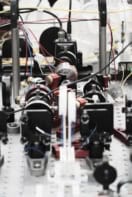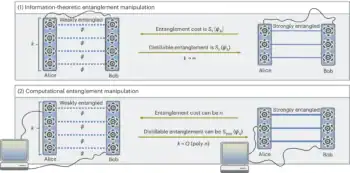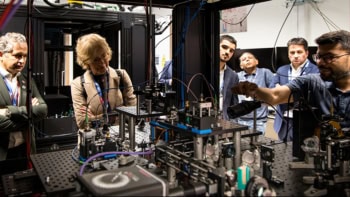Quantum computers rely on the ability of quantum particles to be in two or more quantum states at the same time. In recent years several experimental groups have demonstrated quantum logic gates in a variety of simple systems. Now Jonathan Jones of Oxford University and co-workers have combined the nuclear magnetic resonance (NMR) approach to quantum computation with the geometric phase - one of the most subtle effects in quantum theory - to perform "geometric quantum computation" for the first time (Nature 403 869).
One of the biggest challenges in quantum computation is to built “fault tolerant” logic gates. In the mid-1990s it was shown that this requires the time evolution of a quantum sub-system to be controlled by the state of a second sub-system. The evolution of the first system can manifest itself in several ways, including a phase shift. In the Oxford experiment this phase shift can be geometric.
The geometric phase was predicted by Michael Berry in 1984. Basically, if the Hamiltonian describing a quantum system is changed extremely slowly, and eventually returns to its initial value, then the system acquires a quantum phase that depends on the area enclosed by the changing Hamiltonian. This is in addition to the well-known dynamical phase associated with time evolution. The geometric phase has since been detected in many different experimental systems.
Jones and co-workers performed their experiment at room temperature in a solution containing chloroform (CHCl3) labelled with carbon-13. The quantum systems were the spins on the hydrogen and carbon-13 nuclei, and the size of the geometric phase shift applied to the hydrogen nucleus depended on the spin state of the carbon-13 nucleus. However, the team stresses that the geometric approach to NMR quantum computation has “no particular advantage” over more conventional methods.



